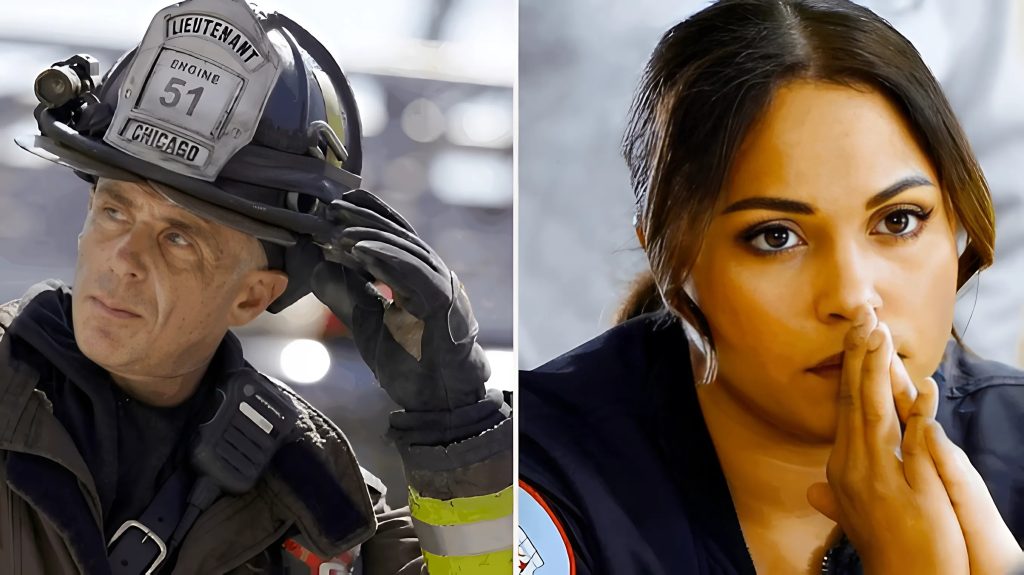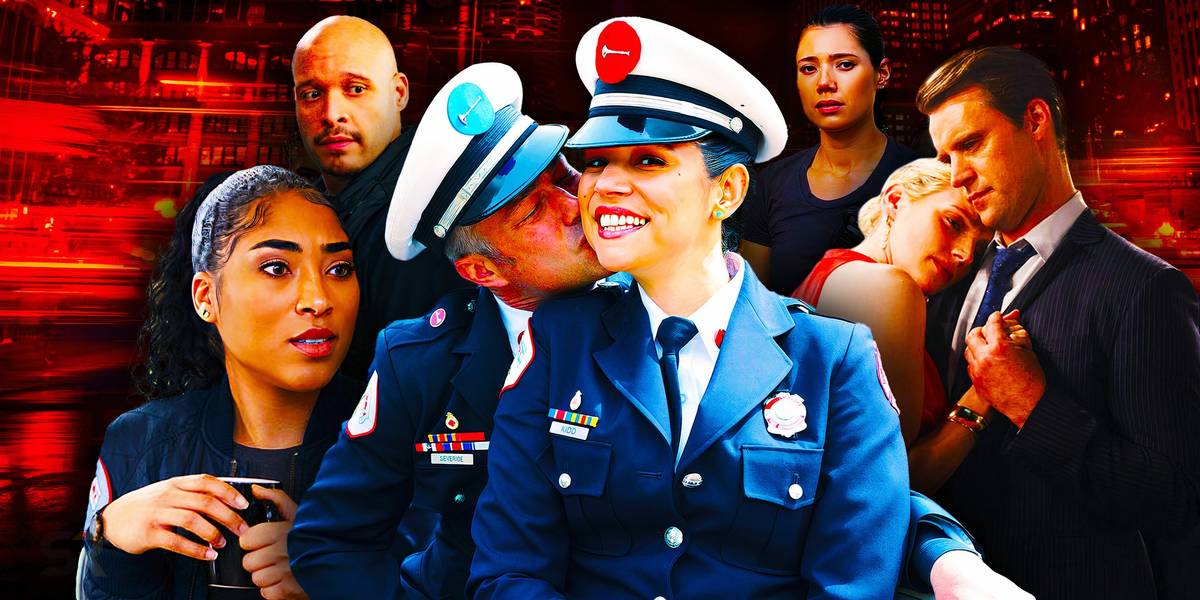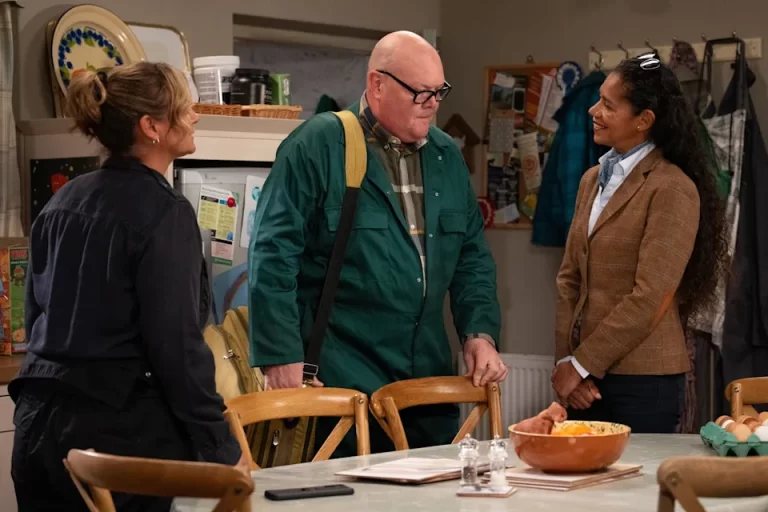
For over a decade, Chicago Fire has thrilled audiences with high-octane rescues, emotional character arcs, and the intense camaraderie of Firehouse 51. While much of the spotlight has traditionally fallen on male leads like Kelly Severide and Matthew Casey, it’s the women of the firehouse who have quietly and consistently driven some of the show’s most powerful storylines. As Chicago Fire prepares for Season 14, the time has come to fully recognize and celebrate the women who have transformed this procedural drama into a deeply human story.
Stella Kidd: Strength, Leadership, and the Road to Motherhood
From her first appearance, Stella Kidd (Miranda Rae Mayo) brought a fresh energy to Firehouse 51. Fiercely competent, endlessly passionate, and emotionally grounded, Kidd quickly became a core figure on the show — not just as Severide’s partner but as a firehouse leader in her own right.
Her journey hasn’t been easy. From proving herself as a woman in a male-dominated profession to launching the “Girls on Fire” mentorship program, Kidd has always balanced duty with heart. Her promotion to lieutenant was a major milestone for both the character and the show, symbolizing the growing visibility of women in leadership roles in high-risk fields.
Now, with Season 14 on the horizon, Stella is pregnant — a development that will likely redefine her trajectory on the show. Fans are eager (and a little nervous) to see how Chicago Fire handles her pregnancy: Will she stay on active duty? Take time off? Shift into a different kind of leadership role? These questions mirror the real-world challenges many women face in balancing career and motherhood.
What’s clear is that Kidd’s character arc has become a defining thread of Chicago Fire, and one that viewers are rooting for with full hearts.
Violet Mikami: Grief, Growth, and the Paramedic Who Won Us Over
When Violet Mikami (Hanako Greensmith) joined Chicago Fire as a recurring character, few could have predicted the impact she would have. Her initial romantic entanglement with Gallo and her sharp wit added comic relief and tension. But it wasn’t until tragedy struck — with the sudden death of her partner, Chief Evan Hawkins — that Violet’s emotional depth came into full focus.
The aftermath of Hawkins’ death allowed Greensmith to deliver some of the show’s most moving performances. Violet’s grief was raw, unfiltered, and entirely relatable. Her struggle to keep going while managing trauma highlighted the emotional toll that emergency responders often face off-screen.
As Brett prepares to leave the show, many fans hope Violet will take on a more prominent leadership role in the paramedicine team. She has the experience, the emotional intelligence, and the loyalty to Firehouse 51 to carry that torch forward. And in a world where grief often gets swept under the rug, Violet’s journey is a reminder of the healing power of purpose and community.
Sylvie Brett: A Legacy of Compassion

Though she’s now on her way out, Sylvie Brett (Kara Killmer) has left an indelible mark on Chicago Fire. Introduced in Season 3, Brett evolved from a wide-eyed paramedic from Indiana into a confident, deeply compassionate team leader. Her relationship with Casey may have gotten the most media attention, but her most important role was always at the heart of the firehouse.
Brett’s decision to leave Chicago to build a new life is bittersweet. It reflects the realism the show has always embraced: not every goodbye is dramatic or tragic. Sometimes, people simply grow and move on. That her exit is on her own terms — with dignity and optimism — is perhaps the perfect conclusion to her arc.
Kara Killmer’s portrayal of Brett over nine seasons has helped Chicago Fire maintain its emotional center. And while her absence will surely be felt, her legacy will live on in every compassionate choice her colleagues make.
A Shift in Focus: Time for More Female-Centric Stories
Historically, Chicago Fire has sometimes struggled to give its female characters the screen time and depth they deserve. While characters like Shay (Lauren German), Dawson (Monica Raymund), and Brett have all had memorable arcs, they were often overshadowed by broader male-led plotlines.
But in recent seasons, that’s started to change. Kidd’s leadership journey, Violet’s emotional resilience, and even newcomer Lizzie Novak’s quiet chemistry with Ritter have shown that female perspectives bring essential balance to the show’s narrative. Fans are hungry for even more stories that explore the challenges and triumphs of women working in extreme conditions — not just as love interests or side characters, but as heroes in their own right.
The opportunity is ripe. With major characters departing and others stepping up, Chicago Fire has a chance to reimagine its ensemble. Introducing more women in positions of authority — or digging deeper into the internal lives of the women already on the team — would enrich the series and reflect the real-world diversity of first responders in cities like Chicago.
Fans Weigh In: Representation, Respect, and Reality
The fanbase has long championed the show’s women, with online forums frequently calling out when their arcs are sidelined or cut short. Many were vocal about the early exit of characters like Shay and Gabby Dawson, arguing that Chicago Fire didn’t always know what it had until it was gone.
“I stuck with the show after Shay left, but it’s taken years to bring that kind of energy back,” one Twitter user wrote. “Violet is the closest we’ve come to that raw vulnerability + strength again.”
Others praised the show’s evolving portrayals of motherhood and trauma. “Stella Kidd showing you can be tough and vulnerable, a leader and a mom-to-be? That’s the kind of TV I want to see.”
These voices underscore a larger truth: audiences are invested in the women of Chicago Fire, and they want those stories to be treated with the same complexity and care as their male counterparts.
Final Thoughts: She’s the Fire, Too
Firehouse 51 may be filled with smoke, steel, and sweat — but at its core are the women who keep it burning bright. From saving lives to healing hearts, they’ve proved time and time again that bravery comes in many forms.
As Chicago Fire enters its next chapter, it has a chance to continue lifting up the voices of its female characters and give them the arcs they so richly deserve. The strength of One Chicago has always been its ensemble. Now is the time to ensure that ensemble is balanced, diverse, and authentically powerful.


